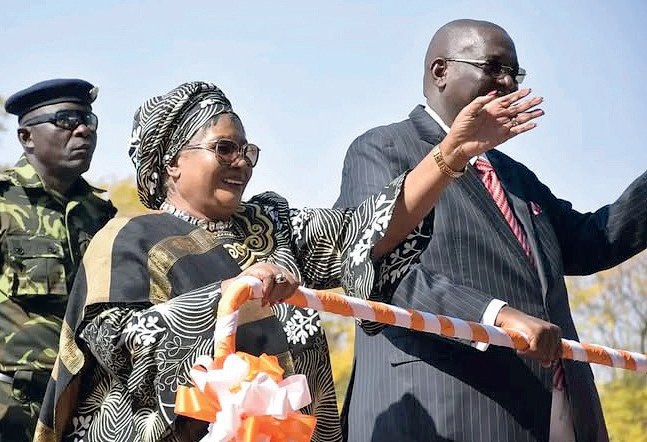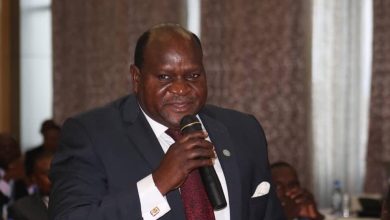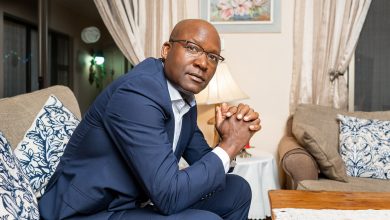She wants the Presidency again
She made history as Malawi’s first—and so far only—female President, leading the country from 2012 to 2014. Now, JOYCE BANDA (JB) is seeking a return to office. In this exclusive conversation, our News Analyst WYCLIFFE NJIRAGOMA discusses with JB her vision, her lessons from the past, and what she believes Malawi needs for its future. Excerpts.

Q What do you consider to have been your most significant achievements and lessons learnt about governing Malawi?
A I believe I was destined to lead. At age 10, I wrote an essay on the importance of educating girls that was published in a government paper. My father proudly showed it around, and a family friend told him: “This child is destined for greatness.” That stayed with me. My dad, who was a policeman, reinforced it by always saluting me as a child, taking me to see State House and insisting I was equal to my brother. The lesson is clear: words and opportunities shape leaders. As I grew up, I consistently stepped into leadership roles – from school debating societies to business. Later, research confirmed what I had lived: many women leaders trace their confidence back to their fathers’ encouragement. I learned early that girls must be empowered from day one, not only in adolescence. The broader lesson for Malawi is that investing in girls’ education and empowerment builds leaders in every sector, not just politics. Women must be fearless, support each other, and demand space in leadership despite discrimination and barriers.
QWomen leaders in Malawi face steep societal barriers. How have those challenges shaped you?
AYears ago, when I was 30, I wrote a mission statement that I would dedicate my life to empowering women, youth and girls through business and education. In a country without affirmative action, women must fight on unequal ground. Economic empowerment is the key. That is why I founded the National Association of Business Women in 1990, whose membership reached 100 000 women. Four of us, Alice Sumani, Lillian Patel, Mary Kaphwereza Banda and myself went on to become cabinet ministers. The link is clear: when women earn, they gain voice and political space. But today, economic hardship and abuse on the campaign trail discourage women. Unless women are supported economically, they cannot compete politically.
Q How do you respond to those questioning your ability to lead the country again?
AThis is the first time anybody has questioned my ability to lead again. The first person is you. When judging leadership, look at how one addresses issues affecting ordinary people. When I became president, Malawi had no fuel, no forex, there were power blackouts, food shortages for two million people, and no media freedom. By 2013, we had restored fuel and forex, improved food security, allowed churches and institutions to run media outlets, and repealed oppressive laws. I tackled corruption head-on, dissolving my cabinet and overseeing the arrest of 72 people. No other president has done that. Yes, money was stolen under my watch, about K39 billion, but compare that to K230 billion stolen before me, where no arrests were made. I acted, and that is what leadership requires.
QCritics say your proposed initiatives such as distributing motorbikes, food-for-work, and building one million houses are populist and unsustainable?
AI base my programmes on proven models. “Trickle Up” showed even the poorest can thrive with the right push. My focus has been on those who society considers “unbankable”. For example, we gave 500 kabaza operators motobikes; many now own fleets, employ others, and have built homes. Today, 2.8 million Malawians earn a living this way. How populist is that? The one million houses plan is not just about shelter. It’s a safety net for 650 000 people who lost homes to disasters, and each house built creates jobs for at least 20 people. That means food on tables, stronger households, and lower inflation. How populist is that?
Q What was the toughest decision you made in office?
AThe hardest was devaluing the kwacha by 47 percent to restore IMF support. I knew it would hurt people, so I fought for cushions. The World Bank gave us $50 million, we got $20 million from the UK and $87 million from the EU. That inflow of forex allowed cash transfers and food-for-work programmes. The lesson: even painful decisions must be paired with protection for ordinary people, and leaders must explain their choices honestly. The second toughest was confronting Cashgate. I ordered arrests even when it implicated ministers and allies. In total, 72 people were arrested. It was not easy, but I took the risk because Malawians came first.
QWith elections around the corner, do you believe you will return to State House?
AThat decision belongs to Malawians. I was ready to retire. I advise international leaders, including the President of Azerbaijan; but Malawians asked me to come back. What I know is that I have solved crises before, and I can do it again. If chosen, in 14 days fuel will return. If not, I am at peace.
QFinally, what legacy do you hope to leave to Malawians?
AMy legacy is already established: 40 years of empowering women, youth and the poor. I chose to live an extraordinary life of service. Whether through building houses for the displaced, promoting girls’ education, or reforming governance, my mission has been to uplift others. If Malawians remember me as someone who stretched out her hand to change lives, then I have succeeded.





